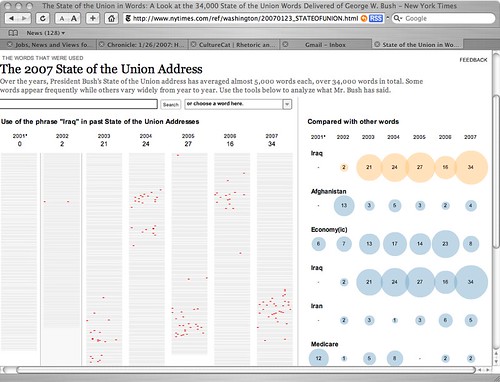The following is an attempt to collect and capture all the questions we've been discussing in my research ethics class. Obviously, I've been assigning reading outside of rhetoric and composition/technical communication, but that's definitely coming later. These questions come out of the bibliography below and The Belmont Report. There is also the interesting question of whether considering all these questions, even if they're only marginally applicable (or not at all) to one's research, makes the study better -- more intellectually substantial and rigorous -- or, one could argue, are most of these questions just not all that important for research in rhetoric and composition/technical communication? Isn't it enough just to get IRB approval? (This is a sincere question.) Oh, and I feel that I should point out what has become a chorus in these readings: Researchers should keep a journal about the ethical questions and issues that arise and reflect on these.. That said, here's the spread:
Respect for Persons
Informed Consent (from Breuch, Olson, and Frantz):
Does the consent form contain the information a research participant needs to make a “well-informed” decision whether to participate or not?
Is the consent form written in a manner that is comprehensible to potential participants?
Is consent from potential participants given voluntarily and without coercion?
Does the consent form contain the information required by the IRB, including the risks and benefits?
Has the consent form been approved by the university IRB and all other relevant entities (e.g., business organization)?
(from Agre and Rapkin)
Should you create a learning module (video, online module, booklet) about the study to accompany the consent form?
Should you test participants’ knowledge of the study before they sign the consent form?
How will you ensure that participants understand the study and their role(s)? (if not a test)
(from Miller and Bell)
If you expect participants to review the data and play a secondary investigator/co-researcher role, are these expectations made clear in the consent process?
Is the study designed in such a way that participants are reminded that their consent is voluntary and they can withdraw from the study at any time? (Especially longitudinal studies)
Waiver of informed consent…
Confidentiality (from Breuch, Olson, and Frantz)
Who will have access to the data collected in your research project?
How will data be secured and stored? (in locked files, etc.)
What would prevent data from being kept confidential? Under what conditions would you break confidentiality?
What can you do prior to the study to ensure confidentiality for participants?
Manipulation of Data (from Breuch, Olson, and Frantz)
How will research participants be recruited and selected?
Is the sample of human participants representative of the population to which you want to generalize results?
Are data recorded accurately?
How and when are you writing the research hypotheses or expectations?
Are analyses appropriate for the data and your research questions?
How will you ensure that data are reported accurately?
What will you do if results turn out differently than you expected or hoped?
Relationship with Audience(s) (from Breuch, Olson, and Frantz)
How many different ways may the prospective audience for this research be defined?
What knowledge need does the research seek to fill for the audience(s)?
How has the researcher initiated a relationship with the audience? (through dialogue, review, etc…?)
How has the researcher responded to audience criticism, questions, suggestions?
Ethics and Research Design
Validity and Reliability (from Breuch, Olson, and Frantz)
What steps has the researcher used to ensure that the data reflect honest and careful attention to the research process, the well-being of participants, and responsibility to readers?
Can the results be replicated? If not, should they be?
What method(s) of triangulation has the researcher employed?
What theory (theories) has the researcher used to guide her inquiry?
Has she treated the theories fairly and completely?
Can the researcher employ mentors, readers, or collaborators that triangulate analysis?
(from Weinberg and Kleinman)
Does the general study design enable the investigator to address the aims and hypotheses?
Are outcomes clearly defined?
What are the potential sources of bias and have they been addressed?
Data Analysis/Statistical Methods
Is there an appropriate control group?
Were appropriate methods of blinding used and if so, were they ethically justified?
Were appropriate methods of randomization used and if so, were they ethically justified?
Are there plans for interim monitoring and analysis of safety and/or efficacy data?
Is there a complete data analysis plan?
Do the proposed analyses enable the investigator to address the study aims?
Are the proposed statistical methods correct or appropriate?
Sample Size Considerations
Is there an adequate justification of the study sample size?
Role of the researcher (from Breuch, Olson, and Frantz)
How does the researcher define her role in the field (participant? Observer? Some combination?)
What is the importance of “distance” and some “objectivity” to this field and how does the researcher plan to achieve it?
How does the researcher define her relationships with participants?
What steps can the researcher take to ensure continued awareness of researcher responsibility/role issues?
What strategies does the researcher have to acknowledge and deal with potential role conflicts?
How does the researcher define her responsibilities to her audience as she writes about her data and interpretations?
Beneficence
Assessment of Risks and Benefits
Justice
Relationships with Participants
Conflict of Interest (from Brody, Anderson, McCrary, McCullough, Morgan, and Wray)
What is a conflict of interest? Is it a conflict of interest if you’re friends with one or more of the participants?
Should you disclose conflicts of interest to participants?
Should you disclose conflicts of interest to journal editors when you submit a manuscript?
Should you disclose conflicts of interest to funding agencies?
Informing Participants of Results
Are you, as the researcher, obligated to share your results with participants in this particular study?
What will you do if participants ask to see results during the consent process?
Will you design into the study a way to share results with participants?
At what point in the study is it appropriate to share research results with participants? (after peer review, etc.?)
Should you alter a manuscript if a participant sees it and voices objections?
(from Fernandez, Kodish, and Weijer)
Potential Benefits of Offering to Share Research Results with Participants
1. Demonstrating the on-going central nature of the participant’s role in research
2. Diminishing the chance that the participant may feel exploited by the researcher
3. Providing information that may enhance quality of life or lead to interventions that may decrease the risk of future harm
4. Disseminating information gleaned from research beyond the traditional medical (or academic in general) sphere
5. Raising public awareness of the impact of research on knowledge
6. Emphasizing participants’ contribution to the understanding of disease and therapy (or communication, writing, your discipline in general)
7. Enhancing trust in the researchers and the research process
Potential Harms of Offering to Share Research Results with Participants
1. Incorrect or harmful medical decisions based on uncertain or unreliable results (especially if the study has not reached adequate maturity)
2. Causing distress for those participants who did not benefit from or may have been harmed by the researcher
3. Rekindling old memories and emotions, especially in the setting of serious illness
4. Emotional distress among family members or others, if the research participant has died
5. Possible discrimination in obtaining employment or insurance for individuals identified to have developed, or to be at high risk of developing complications
6. Possible “survivor guilt” for those assigned to a superior treatment arm of a randomized clinical trial
7. ]Financial costs to participants and to researchers
Recommendations from Fernandez, Kodish, & Weijer
Guidelines sharing summary research results
1. A summary of research results should be offered to all human research participants.
2. Research results should be offered as part of the original consent process and re-offered at the conclusion of the study.
3. Researchers should provide a summary to participants of the possible harms and benefits to receiving research results.
4. Researchers should establish a mechanism to maintain contact with research participants with the express intent of facilitating discourse of research results.
5. Research budgets should reflect the cost of sharing research results.
6. Participants have the right to decline receiving all or part of research results.
7. Research results should, in general, not be shared with participants until the data interpretation has undergone peer review. [but what counts as peer review? What if some of your colleagues review it, but it’s not blind review? Blind review can take years, literally, and sometimes the research results are never given the green light because of reviewers’ at times arbitrary prejudices.]
8. Research results should be offered in a timely manner by the researcher or a qualified representative. [what if this conflicts with #7?]
9. Researchers should offer to provide results in a lay format both orally and in a written summary. These should document the context and the goals of the study, the major findings, limitations of the study findings, any anticipated long-term effects and surveillance required, and how the data will be disseminated.
10. A technical bibliography of the findings of the study should be offered.
11. Medical or psychological needs of research participants should be considered when research results are provided.
12. Follow-up plans for disclosing further research findings from the study should be provided, if appropriate.
Agre, Patricia, and Bruce Rapkin. “Improving Informed Consent: A Comparison of Four Consent Tools.” IRB: Ethics and Human Research 25.6 (2003): 1-7.
Breuch, Lee-Ann Kastman, Andrea M. Olson, and Andrea Breemer Frantz. “Considering Ethical Issues in Technical Communication Research.” In Research in Technical Communication. Ed. Laura J. Gurak and Mary M. Lay. Westport, CT: Greenwood Publishing Group, 2002.
Brody, Baruch A., et al. “Expanding Disclosure of Conflicts of Interest: The Views of Stakeholders.” IRB: Ethics and Human Research 25.1 (2003): 1-8.
Fernandez, Conrad V., Eric Kodish, and Charles Weijer. “Informing Study Participants of Research Results: An Ethical Imperative.” IRB: Ethics and Human Research 25.3 (2003): 12-19.
Miller, Tina, and Linda Bell. "Consenting to What? Issues of Access, Gate-Keeping and 'Informed' Consent." In Ethics in Qualitative Research. Ed. Melanie Mauthner, Maxine Birch, Julie Jessop, and Tina Miller. Thousand Oaks, CA: Sage, 2005.
Weinberg, Janice M., and Ken P. Kleinman. “Good Study Design and Analysis Plans as Features of Ethical Research with Humans.” IRB: Ethics and Human Research 25.5 (2003): 11-14.






